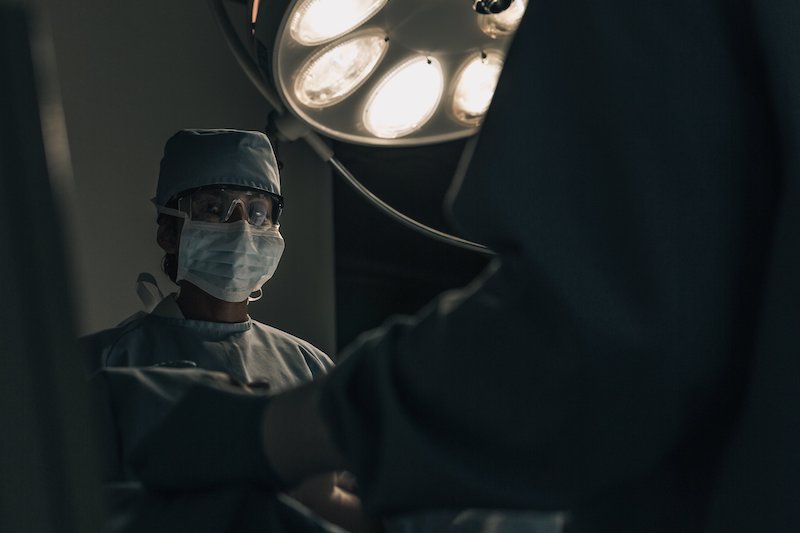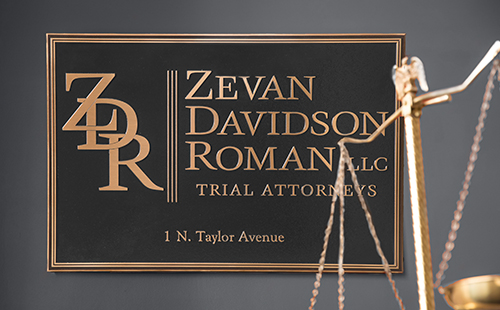Missouri Medical Malpractice Statute of Limitations
In Missouri, the general statute of limitations for medical malpractice cases is two years from the date of negligence under RSMo. § 516.105. This statute of limitation applies to all actions against health care providers related in any way to health care services.
There are some very narrow exceptions to the two-year medical malpractice statute of limitations in Missouri. Three of them are described in RSMo. § 516.105.
Exceptions to Missouri Medical Malpractice Statute of Limitations:
1. Negligently permitting a foreign object to remain in the body:
- Under RSMo. § 516.105(1), if the act of negligence is introducing and negligently permitting any foreign object to remain in the body of a living person, the statute of limitations is two years from the date of discovery of the alleged negligence, or the date on which the patient, in the exercise of ordinary care, should have discovered such alleged negligence, whichever is first.
Note that for this exception to apply, the “foreign object” must be something that should not have been left in the body in the first place.
For example, if a patient undergoes surgery and doesn’t discover that a sponge was negligently left in her body until four years after the original surgery, this exception to the statute of limitation applies.
However, it would not apply if a physician placed hernia mesh which was intended to be left in the body, and a patient did not discover that the hernia mesh was causing him complications until four years after the original surgery. A ten-year statute of repose applies to this exception, so that the action must be filed within ten years of the date of the negligent medical treatment.
2. Negligent failure to inform patients of test results:
- Under RSMo. § 516.105(2), if the act is the negligent failure to inform the patient of the results of medical tests, the statute of limitations is two years from the date of discovery of such alleged negligent failure to inform, or from the date on which the patient in the exercise of ordinary care should have discovered such alleged negligent failure to inform, whichever is first.
Note that this exception only applies if the act of negligence is failing to inform of test results. This exception does not apply if a physician informs the patient of test results that were not correct.
If a doctor incorrectly interpreted a test, but the patient did not find out that the test results were incorrect for three years, this exception to toll the statute of limitations would not apply.
However, this exception would apply if a doctor fails to inform a patient about CT scan results that showed a cancerous mass, and the patient did not find out about the cancerous mass until years later, when the cancer has already spread. A ten-year statute of repose also applies to this exception.
3. 18 years or younger:
- Under RSMo. § 516.105(3), if the injured person is under 18 years of age at the time of the negligent medical treatment, the injured person has until his or her 20th birthday to file a lawsuit.
- This exception applies in the case of injuries during labor and childbirth, as well as any injuries to a child.
However, if a minor is injured it is wise to contact attorneys as soon as possible. Lawsuits can be filed by a minor’s representative and it is easier to collect evidence when you are closer in time to the date of negligence.
4. Continuing treatment or care exception:
- This exception was not created by statute, but instead was created through common law. See, e.g., Cole v. Ferrell-Duncan Clinic, 185 S.W.3d 740 (Mo. App. S.D. 2006). Under the continuing care exception, the statute of limitations for a medical malpractice action does not begin to run until the necessity that gave rise to the care relationship has ended.
For example, if a patient undergoes surgery and then has several follow-up visits with a surgeon, the two-year statute of limitations will not run until two years after the last follow-up visit.
The statute of limitations will also begin to run if the physician terminates his or her patient. The continuing care exception is also narrowly interpreted, and the statute of limitations will not be suspended in all circumstances where a patient continues to treat with a physician or health care provider.
If a patient continues to treat with a health care provider, but for a different health care complaint, the statute of limitations as to the original negligent act may be running already. This was discussed in the recent case Newton v. Mercy Clinic East Communities, 596 S.W.3d 625 (Mo. banc 2020).
5. Fraudulent acts:
Under RSMo. § 516.280, the statute of limitations is tolled if there is an improper act such as fraudulent concealment of the negligence. See Hershley v. Brown, 655 S.W.2d 671 (Mo. App. W.D. 1983).
Negligence leads to death of person:
- While not an exception to the statute of limitations per se, there is a different statute of limitations for medical malpractice actions where a health care provider’s negligence led to the death of a person.
- If a health care provider’s negligence caused or contributed to cause a patient’s death, under RSMo. § 537.100, the patient’s family has three years from the date of death to file a wrongful death claim in Missouri.
However, there is a category of medical malpractice claims known as “lost chance” or lost chance of survival claims which are subject to the normal two-year statute of limitations even if the injured person dies. This claim is appropriate when a health care provider’s negligence deprived a patient of a meaningful chance of survival, even if the patient already had a less than 50% chance of surviving in the absence of medical negligence. See Wollen v. DePaul Health Center, 828 S.W.2d 681 (Mo. banc 1992).
If you are in doubt as to when your statute of limitations runs, you should contact an attorney as soon as possible. It takes time to investigate medical malpractice claims, and it helps to have an attorney begin his or her investigation at the earliest opportunity.
The attorneys at ZDR are proud to work with attorneys across the country to pursue medical malpractice claims in Missouri.
Missouri Medical Malpractice Lawyer
If you have suffered as a result of medical malpractice, contact our legal team right away. Waiting to seek legal representation can prevent you from filing a claim and receiving the compensation you deserve.
Contact Zevan Murphy today.

